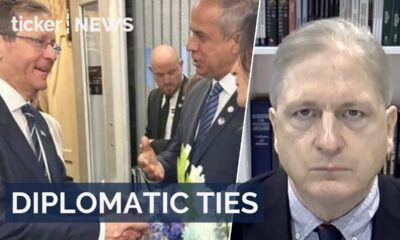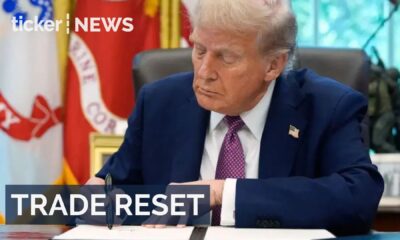Money
Should going to the gym be tax deductible?

Money
U.S. jobs report, Fed decisions, and Japan’s economic risks explained
January US jobs report sparks uncertainty; analysts debate impact on Federal Reserve policy and market confidence.
Money
Alphabet launches $20B bond to fund AI expansion
Alphabet’s $20B bond offering highlights investor confidence in AI growth, enabling funding without shareholder dilution.
Money
AI tax tool sparks market turmoil for financial firms
Major financial firms’ stocks fell sharply after an AI tax tool launch, raising investor fears of disruption in advisory services.
-



 Ticker Views3 days ago
Ticker Views3 days agoIsraeli President Herzog visits Australia amid rising antisemitism
-



 Tech3 days ago
Tech3 days agoClaude AI is transforming software engineering and productivity
-



 Ticker Views1 day ago
Ticker Views1 day agoLunar Gateway faces delays and funding debate amid Artemis ambitions
-



 News4 days ago
News4 days agoRussia missile strikes force Ukraine nuclear plants offline amid safety fears
-



 Ticker Views2 days ago
Ticker Views2 days agoU.S. ambassador responds to NATO criticism at Munich Security Conference
-



 Money3 days ago
Money3 days agoTech stocks slide as investors rotate into small-cap and value plays
-



 News3 days ago
News3 days agoJapan election delivers commanding win for ruling LDP
-



 News5 days ago
News5 days agoTrump lifts India tariffs after New Delhi halts Russian oil imports






